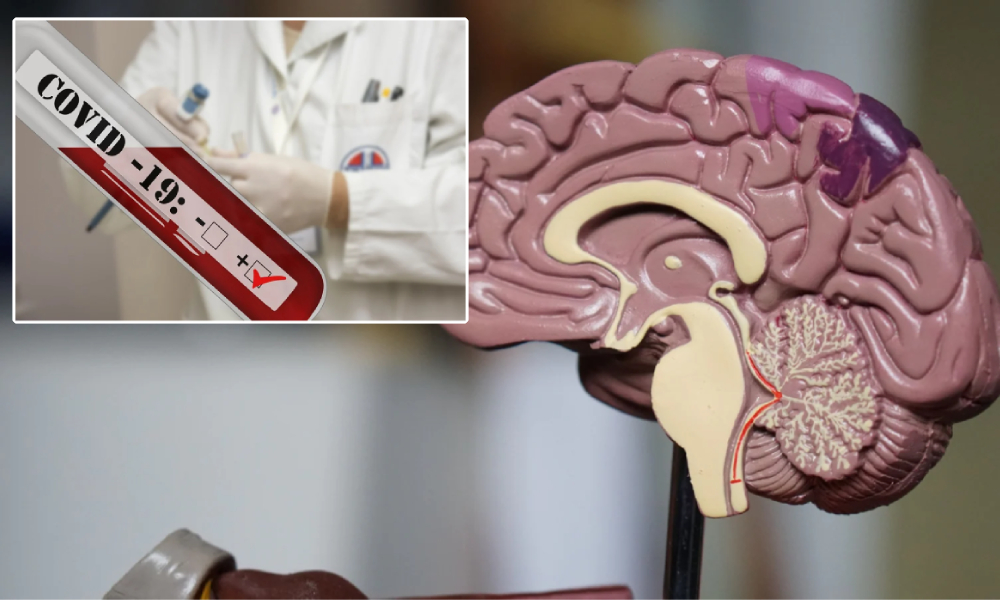
Image Credits: Hindustan Times, Pixabay
Brain Modifications In Alzheimer's Disease Observed In COVID Recovered Patients: Study
Writer: Akshita Mehta
Akshita Mehta is currently pursuing triple majors in Journalism, Psychology, and Literature from Christ Deemed to be University, Bangalore. She believes that sharing the stories of ordinary citizens are a tool to change society.
Others/World, 14 Jun 2021 10:10 AM GMT
Editor : Ankita Singh |
A literature lover who likes delving deeper into a wide range of societal issues and expresses her opinions about the same. Keeps looking for best-read recommendations while enjoying her coffee and tea.
Creatives : Akshita Mehta
Akshita Mehta is currently pursuing triple majors in Journalism, Psychology, and Literature from Christ Deemed to be University, Bangalore. She believes that sharing the stories of ordinary citizens are a tool to change society.
The researchers used artificial intelligence to analyse existing datasets of Alzheimer's patients and COVID-19. They compared the proximity of SARS-CoV-2 host genes/proteins to those linked to a variety of neurological disorders, concluding that closer proximity indicates related or shared disease pathways.
A recent finding by Cleveland clinic's study shows certain mechanisms which can link COVID-19 to Alzheimer's disease-like dementia. The findings by the study titled- Alzheimer's Research and Therapy showed a possible link between Covid-19 and brain modifications as seen in Alzheimer's disease. This can help in defining risk management and treatment options for Covid-19 related cognitive impairment.
The researchers used artificial intelligence to analyse existing datasets of Alzheimer's patients and COVID-19. They compared the proximity of SARS-CoV-2 host genes/proteins to those linked to a variety of neurological disorders, concluding that closer proximity indicates related or shared disease pathways. The researchers also looked into the genetic characteristics that allowed SARS-COV-2 to infect brain tissue and cells.
Researchers revealed close network linkages between the virus and genes/proteins involved with various neurological illnesses, most notably Alzheimer's disease. It indicates mechanisms by which COVID-19 could lead to Alzheimer's disease-like dementia. The researchers also looked into possible links between COVID-19 and neuroinflammation and brain microvascular damage, both of which are hallmarks of Alzheimer's disease.
Neurological Problems
Neurological difficulties in COVID-19 patients and 'long haulier' patients whose symptoms continue after the illness has cleared are becoming increasingly common, implying that SARS-CoV-2 may have long-term consequences on brain function. However, the virus's mechanism for causing neurological problems is still unknown, reported Hindustan Times.
"We discovered that SARS-CoV-2 infection significantly altered Alzheimer's markers implicated in brain inflammation and that certain viral entry factors are highly expressed in cells in the blood-brain barrier, " said Feixiong Cheng, PhD, an assistant staff member of Cleveland Clinic's Genomic Medicine Institute and the study's main author.
Dr Cheng further added that these findings indicate that the virus may impact several genes or pathways involved in neuroinflammation and brain microvascular injury, which could lead to Alzheimer's disease-like cognitive impairment.
The researchers also discovered that people with the variant APOE E4/E4, the most common genetic risk factor for Alzheimer's disease, had lower expression of antiviral defence genes, potentially making them more vulnerable to COVID-19.
Using cutting-edge network medicine and artificial intelligence technologies, Dr Cheng and his team are now aiming to find actionable biomarkers and potential treatment targets for COVID-19-associated neurological problems in COVID long-haulers.
Also Read: US Colleges Ask Students Who Took Covaxin, Sputnik V To Revaccinate
 All section
All section














